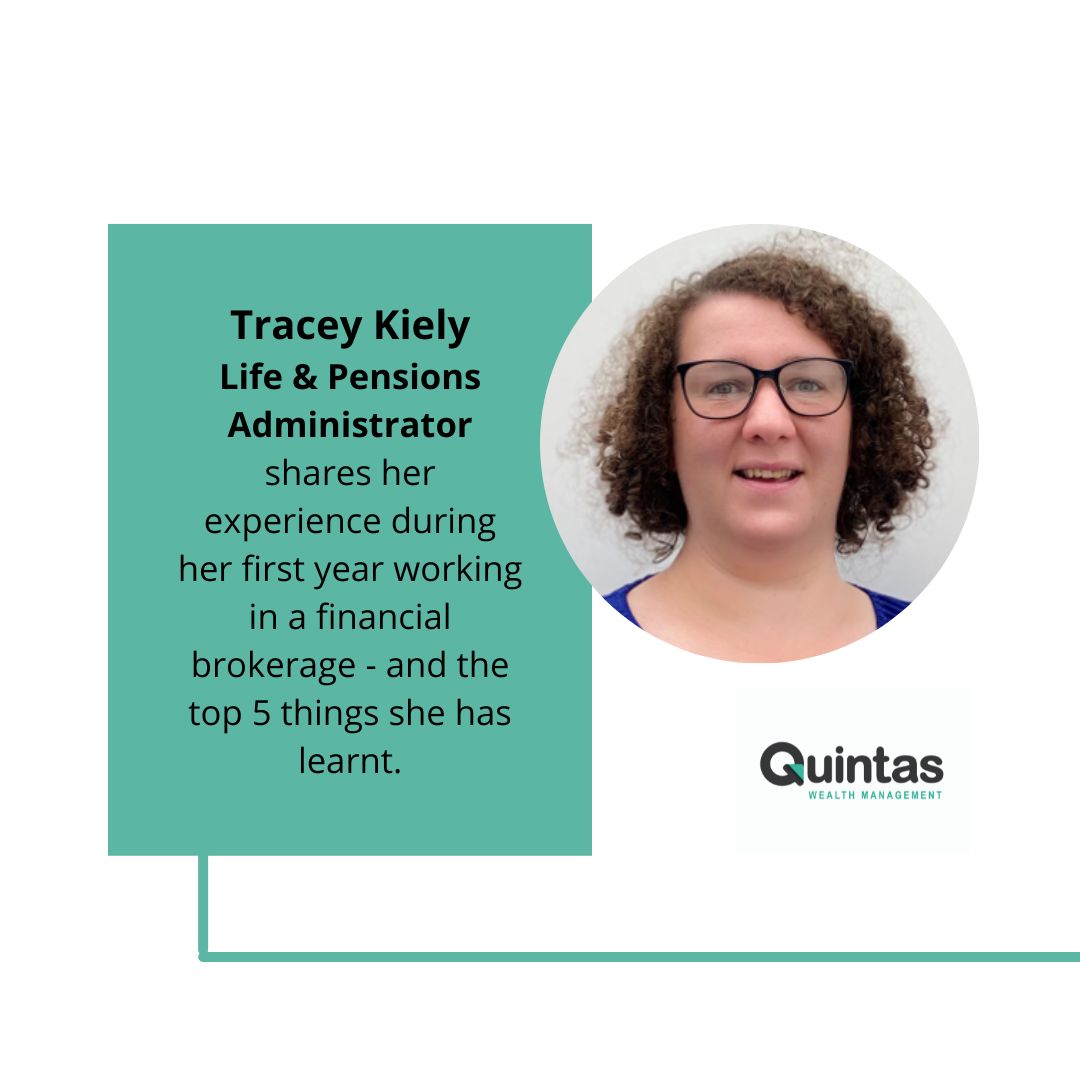Welcome folks, it’s Tracey here. Although most of you probably know me, I will start with a bit about myself. At this point I have over 6 years’ experience in different forms of financial services, namely within Fund services and the alternative investments space. I completed the Professional Diploma in Financial Advice designation (QFA) in July 2021, you could call it a lockdown project. January 2023 marks the start of my second full year in a brokerage. With that top of mind, I decided what better time to record my practical learnings in my first year with an independent financial advisory. Here’s 5 things I’ve learnt that might benefit you.
A Little Today for a Better Tomorrow
Save for your pension. As an early thirty something with (hopefully) decades of work still ahead it can be hard to prioritise saving for retirement. I’ve seen it on so many occasions this year. But when it comes to the other side, it is a huge sense of relief to have a decent pension pot in place. Yes you can argue you don’t know what life will look like in 2060, but nobody will convince me that early thirty somethings in 1990 knew how the world would look in 2022.
‘Hopefully’
Back to that inconspicuous hopefully I included in the first point. Protecting your salary should be one of the first things a graduate invests in. One of Ireland’s largest providers, Zurich have a line ‘we don’t protect against, we protect for’, and it’s true. You are protecting your financial future by investing in this. On the face of it, paying these premiums doesn’t appear as exciting as a crypto vault on an app on your smart phone, but when it comes to being physically out of work for a sustained period I know which one I would prefer to have.
Review, Review, Review
A term used with investing, ‘invest and forget’, meaning don’t unduly concern yourself with the market fluctuations until such time as you need the funds. However, in Quintas Wealth Management the review process is as important as the initial set up. Personal circumstances change, and what is even more common is changes to regulatory guidelines, from time-to-time life companies have offers, better terms, more suitable products. Ensure you review your plan, products and premiums at least annually.
Time in the Markets
It was a hectic year in markets, validating the phrase – ‘time in the markets rather than timing the markets’. My recommendation is invest long term, invest at a volatility (risk) level you are comfortable with and at an affordable level for your circumstances. The best time to invest is always when you can afford it. There is a perception that investing is for people with hundreds of thousands in deposit accounts, regular investments can start from €100 a month.
A New Normal
By and large the days of one job/employer/career for life are a generation or two behind us. More typical nowadays is a mix-um gather-um of employment and employer types (employed, public, private sector, self employed, contract work, multi nationals, Irish SMEs etc.). All the more reason to consolidate your benefits. Do a stock take on what you know you have and think you may have. The very first part of the first step in Quintas Wealth Management’s financial advice process is finding out this information for you.
All in all, an enjoyable first 16 months with Anne and the team. An awful lot learned in my first year about the financial advice business and I’ve no doubt an awful lot still to learn! But as the saying goes “every day is a schoolday”!
Should you wish to review your existing protection, savings and pension policies give us a call today.


